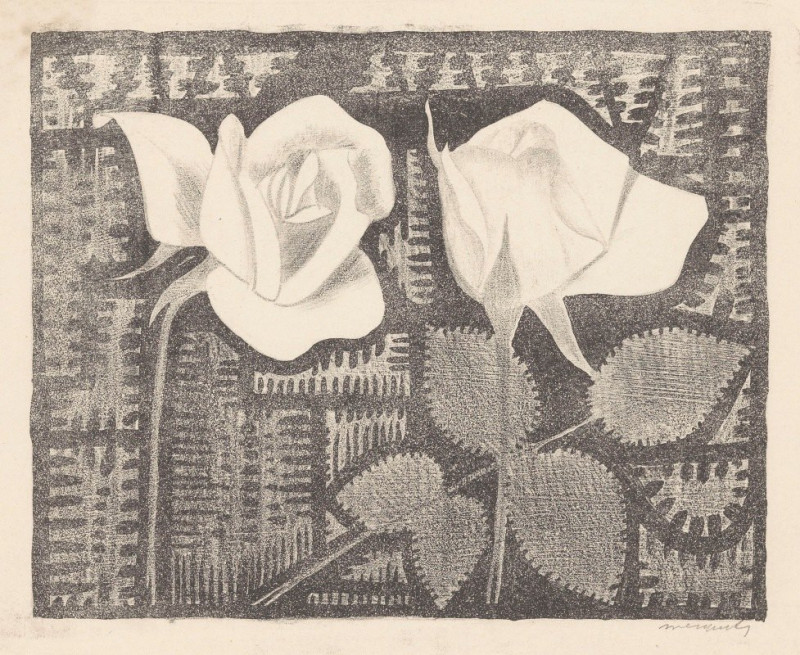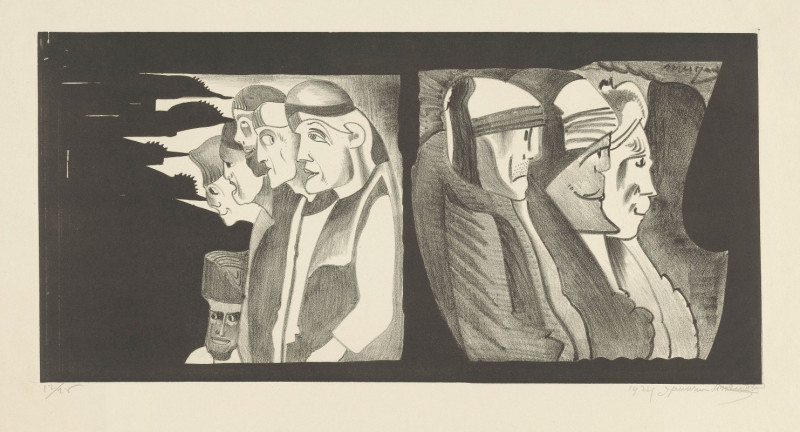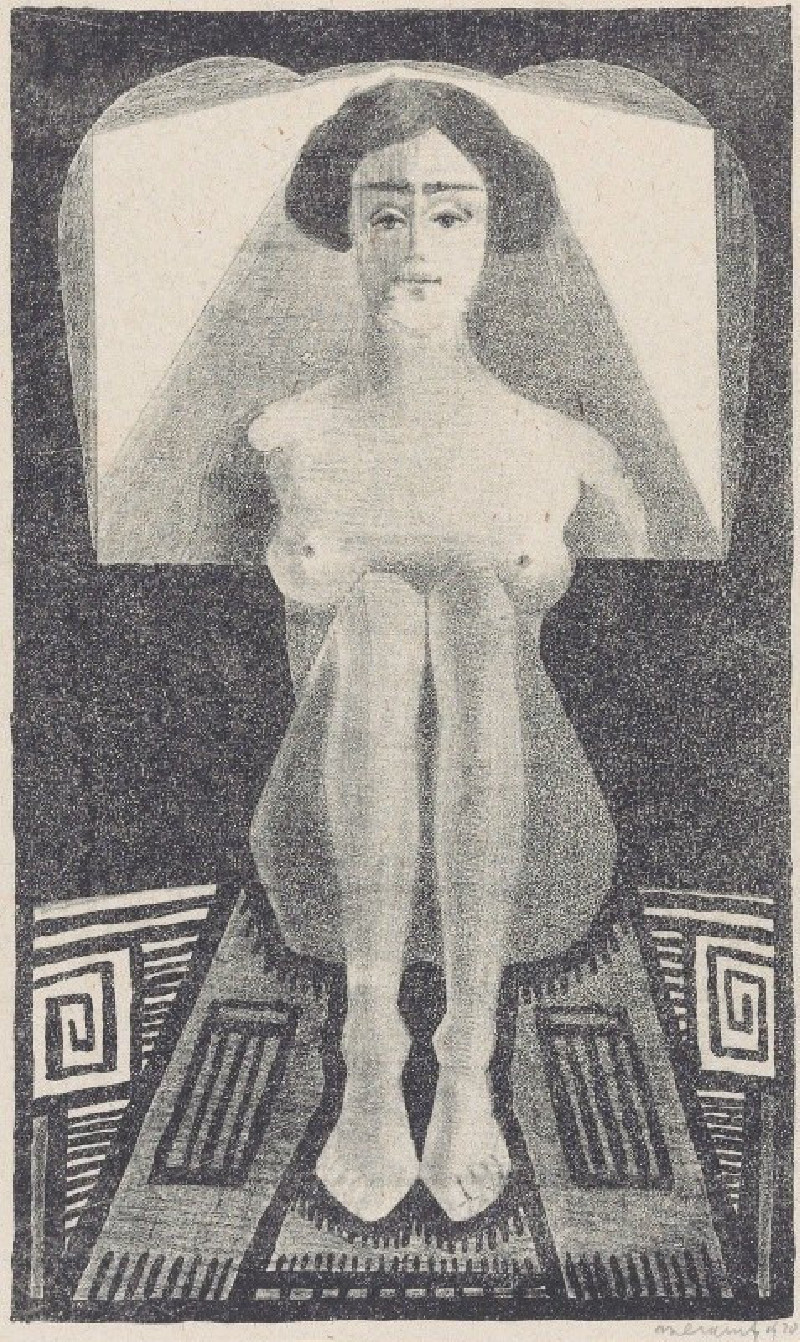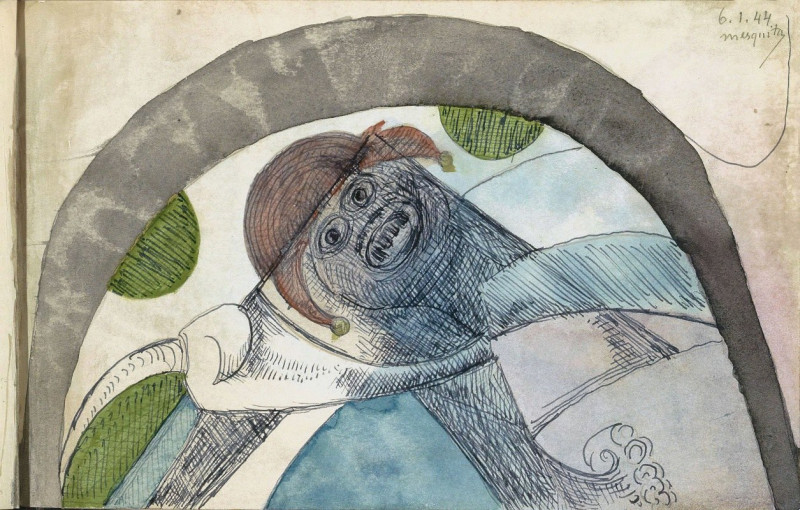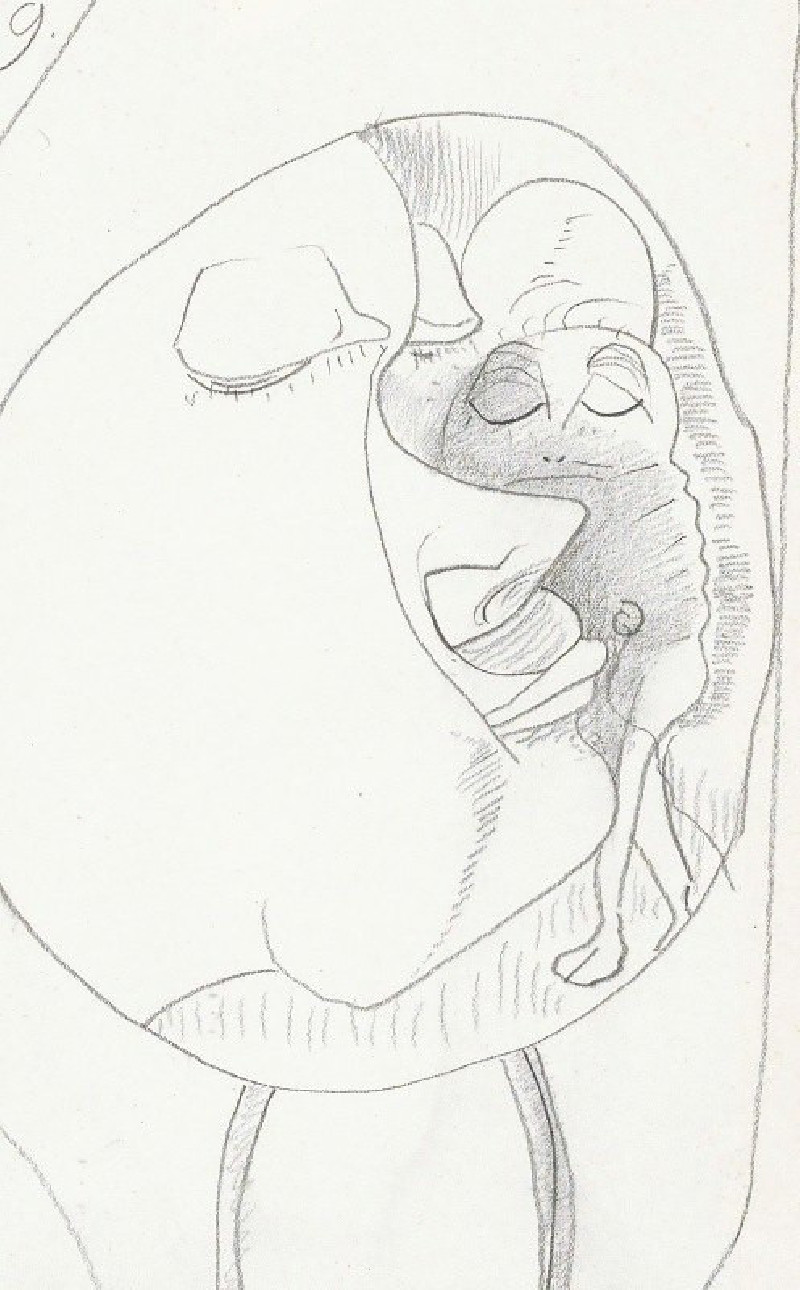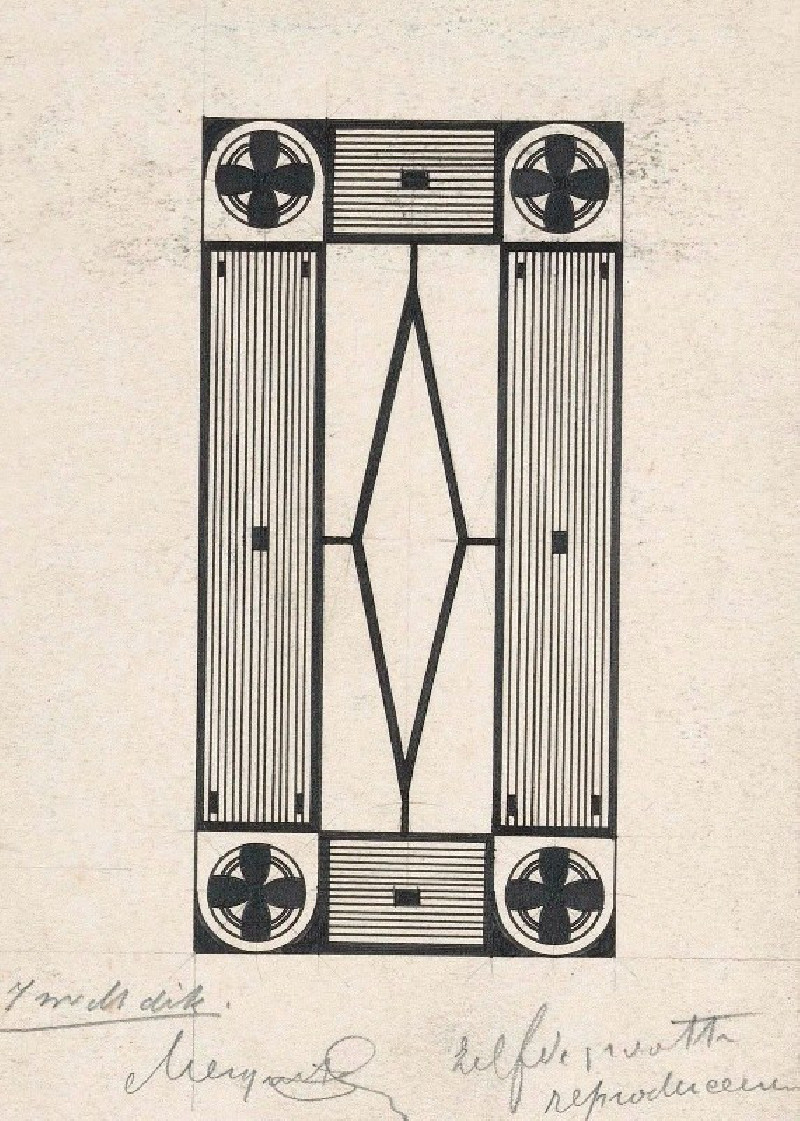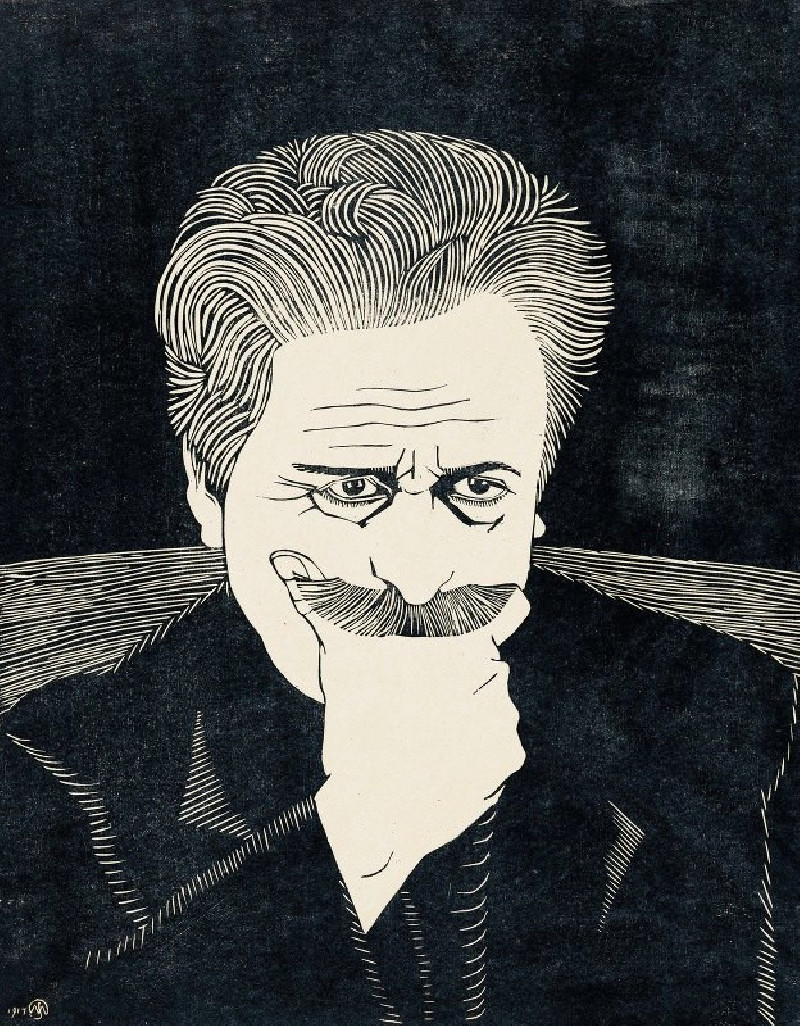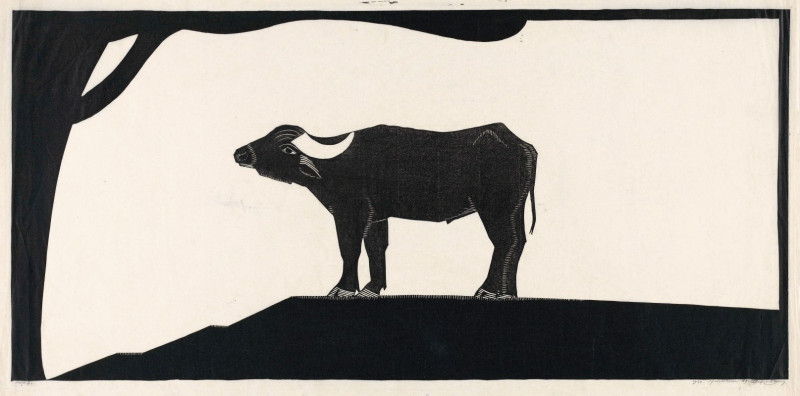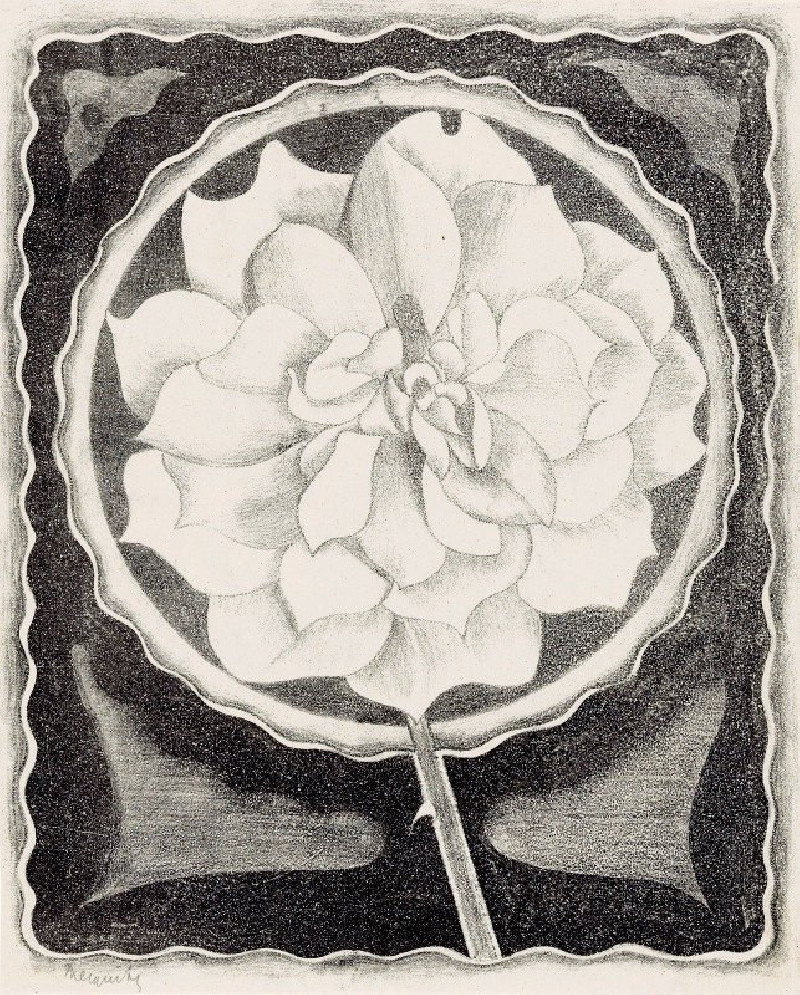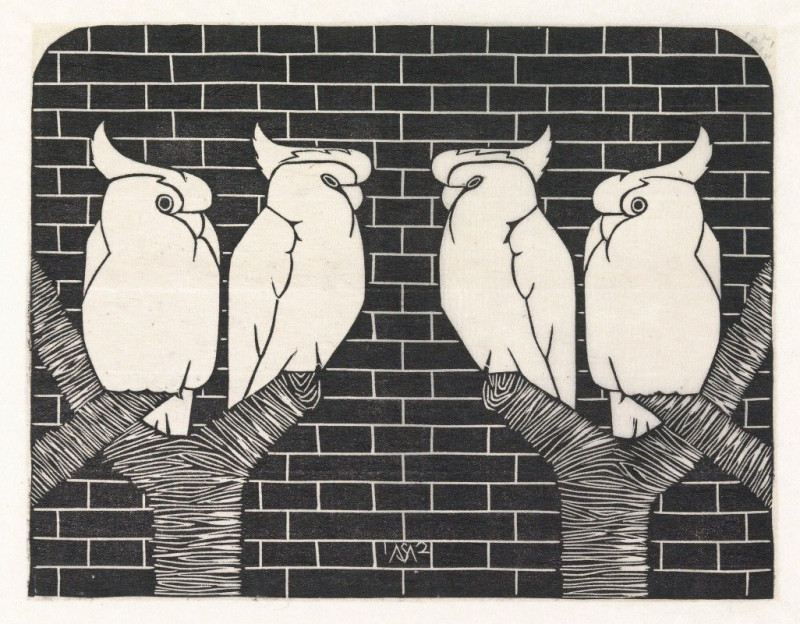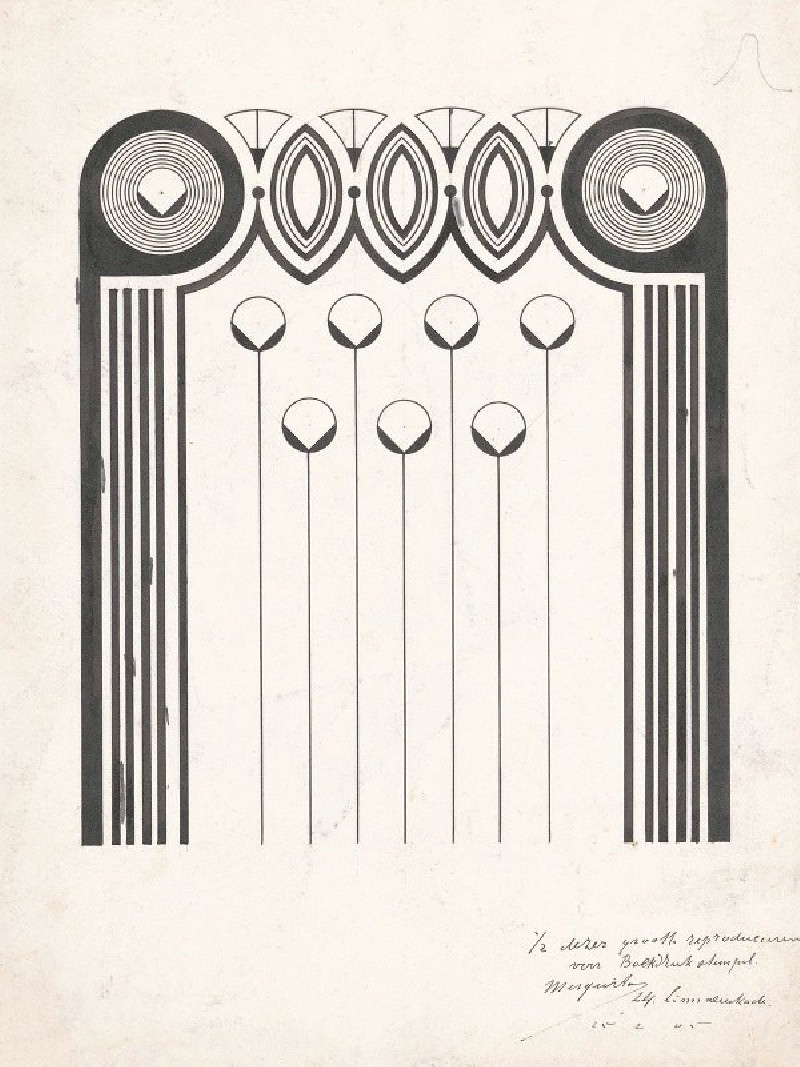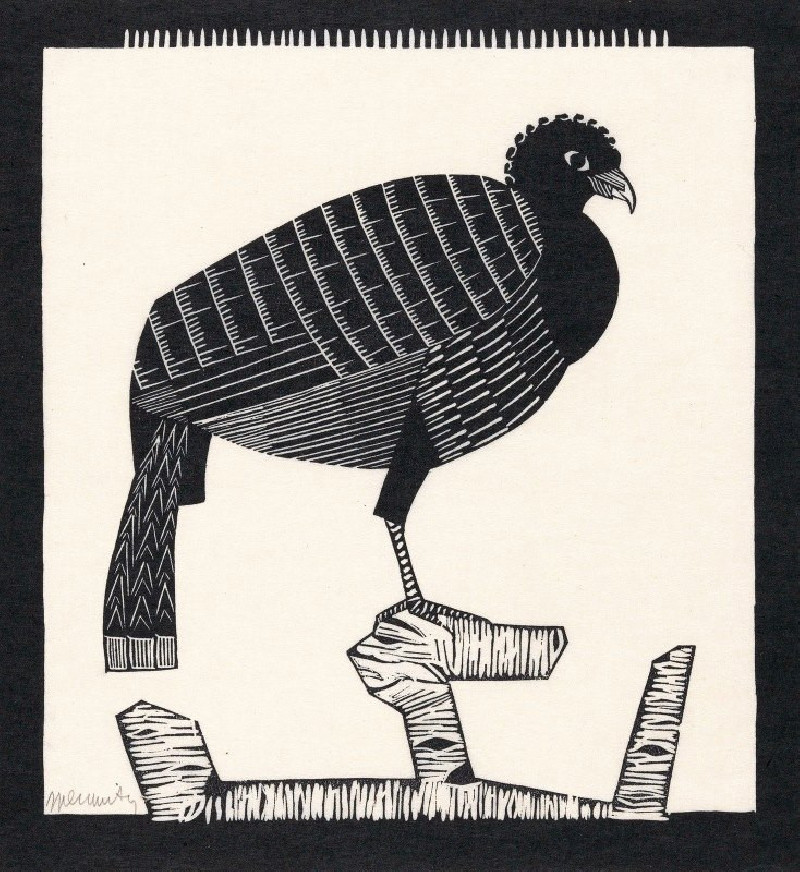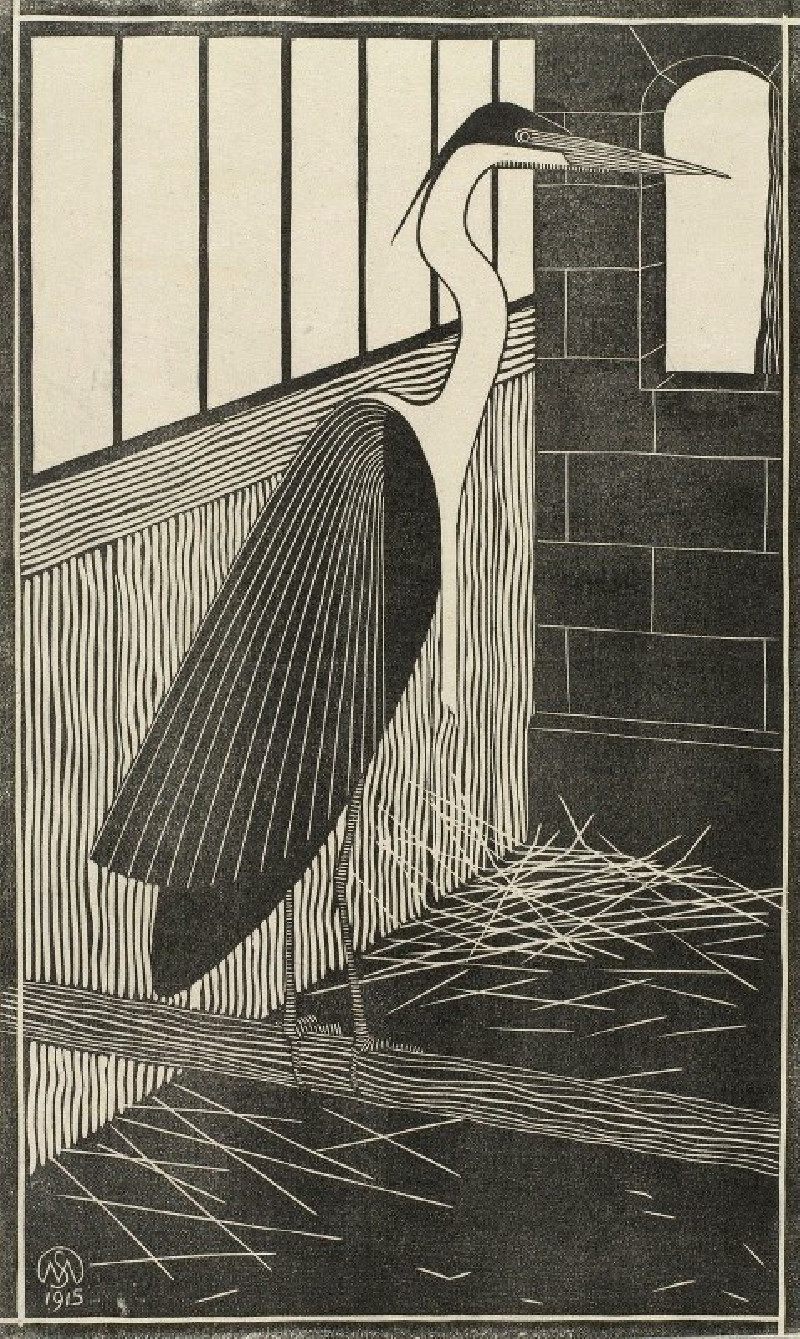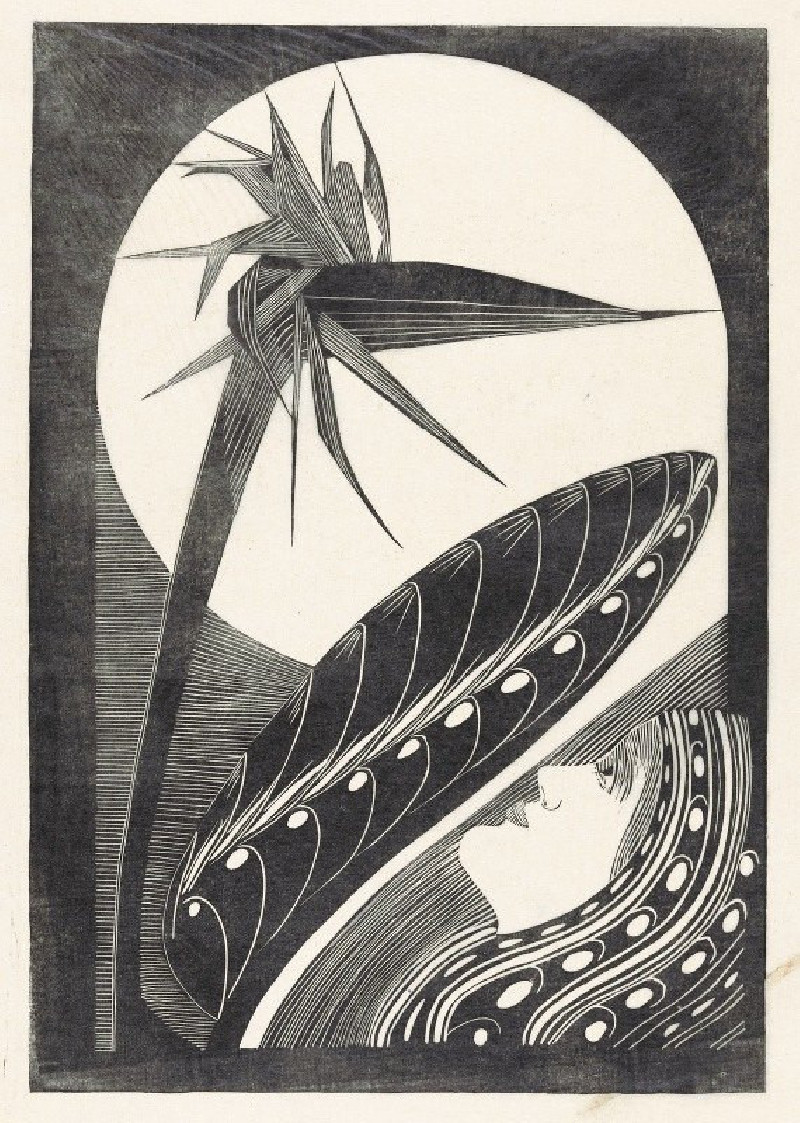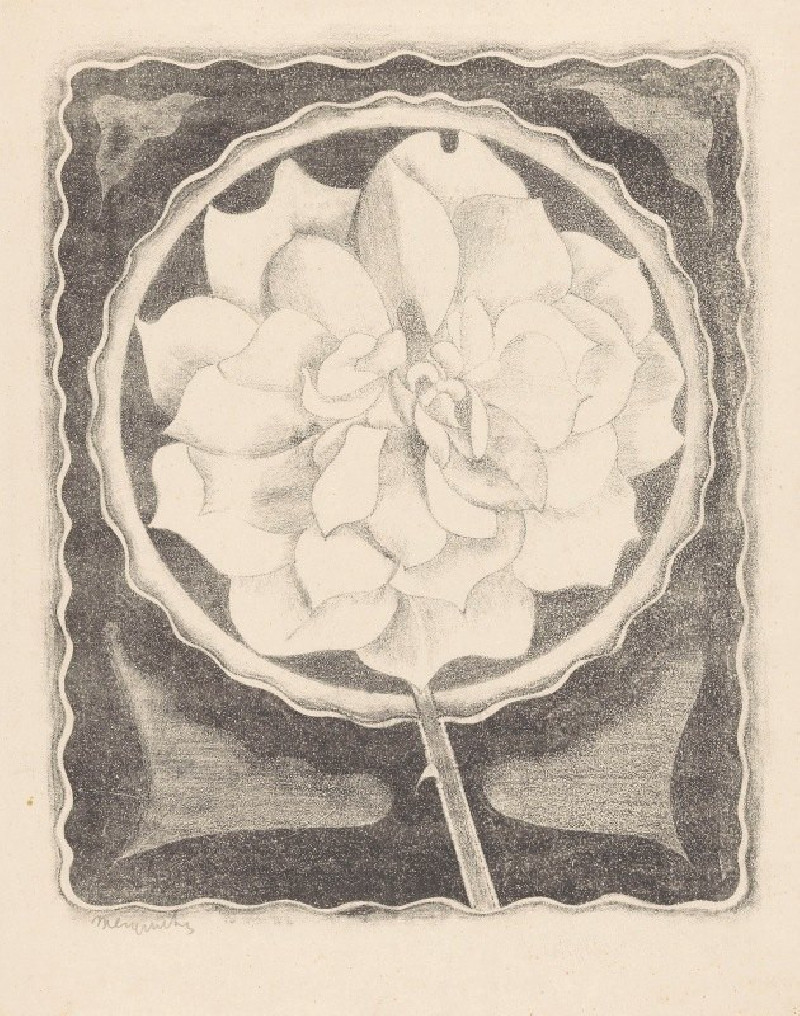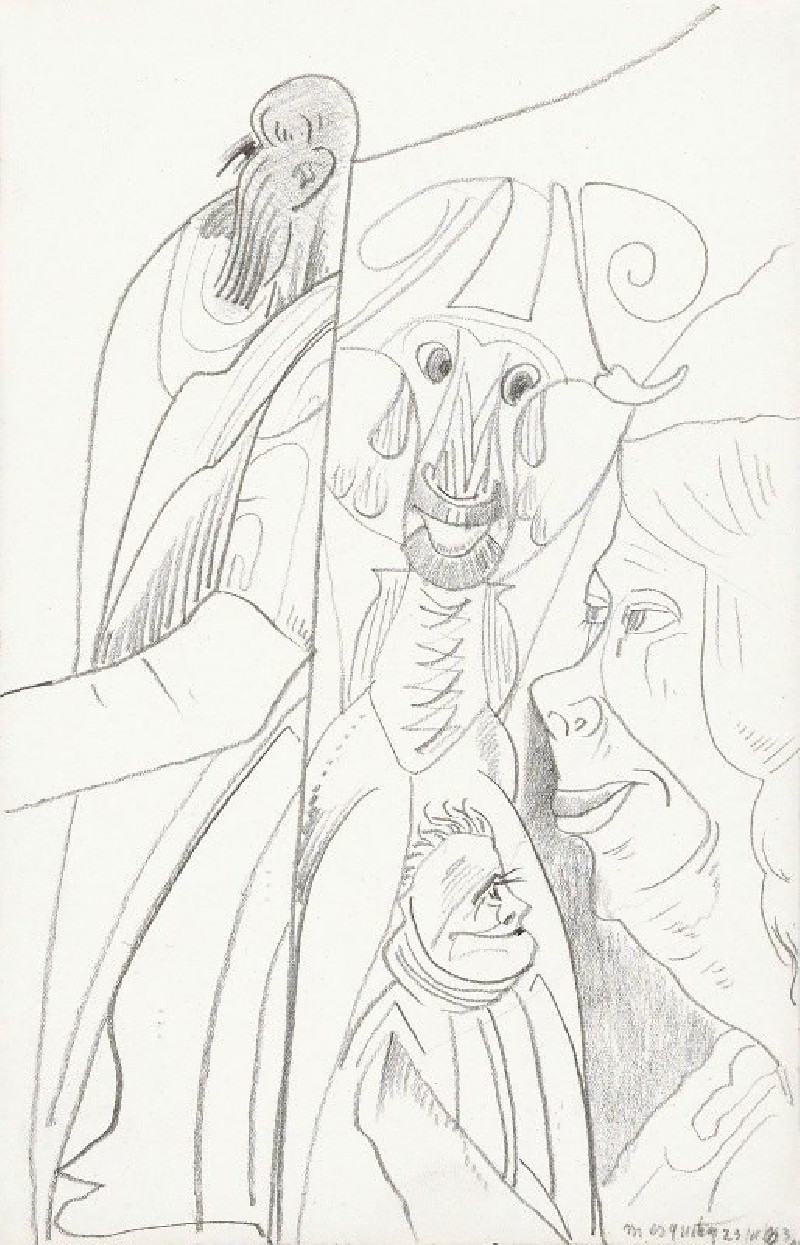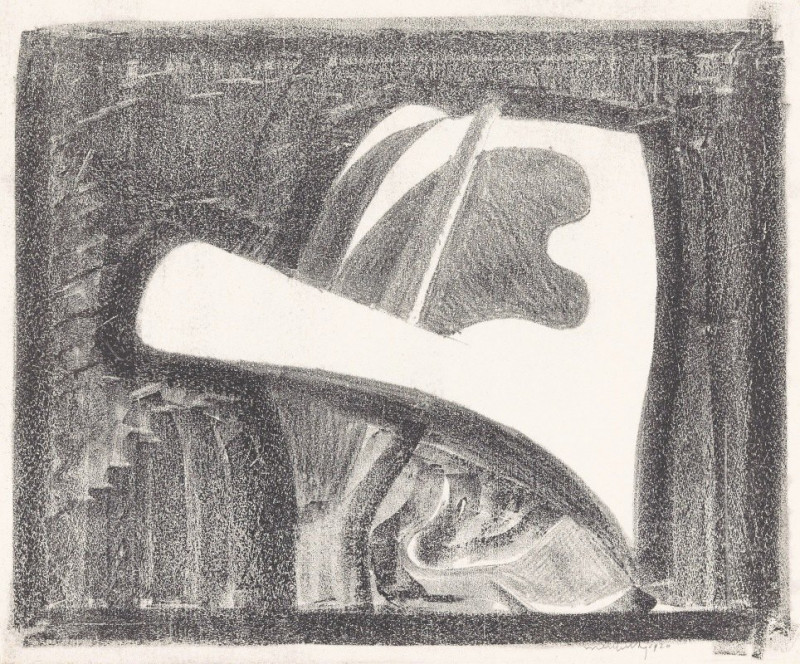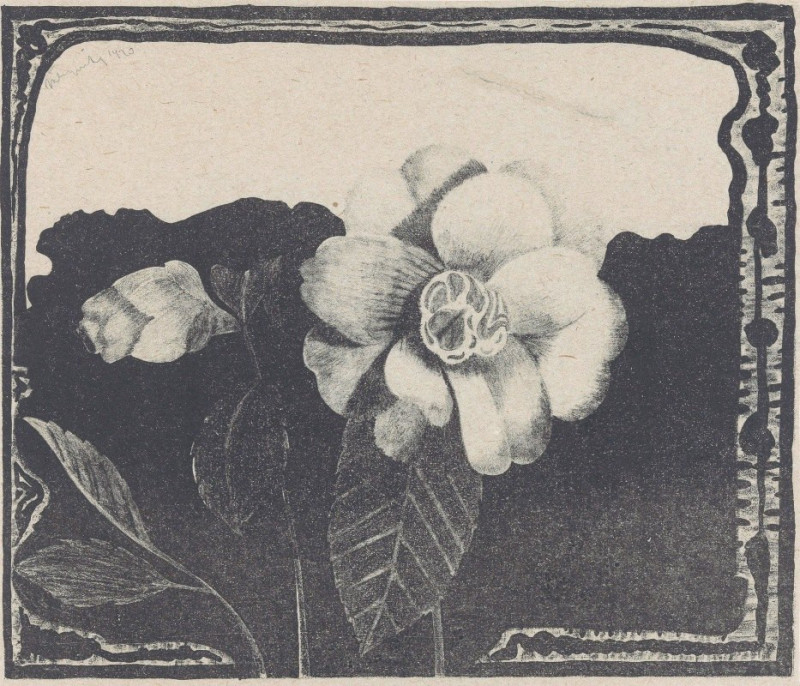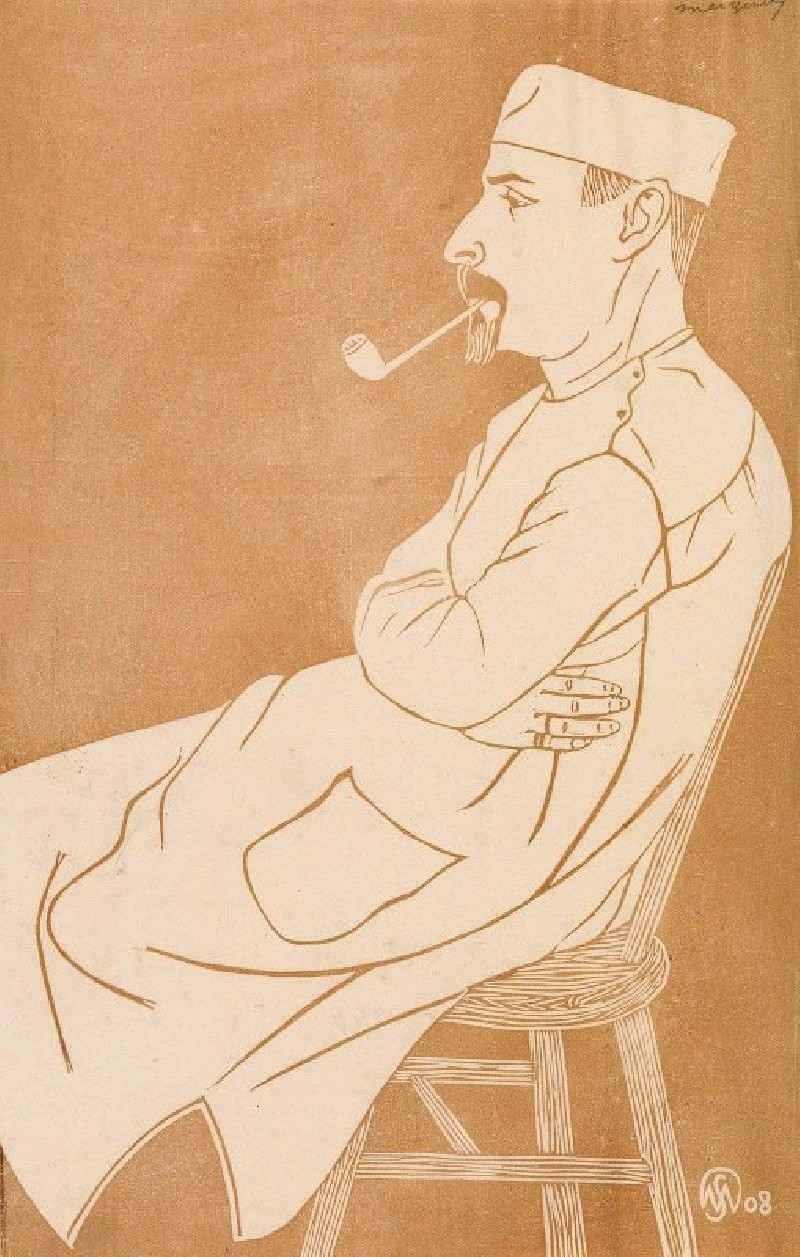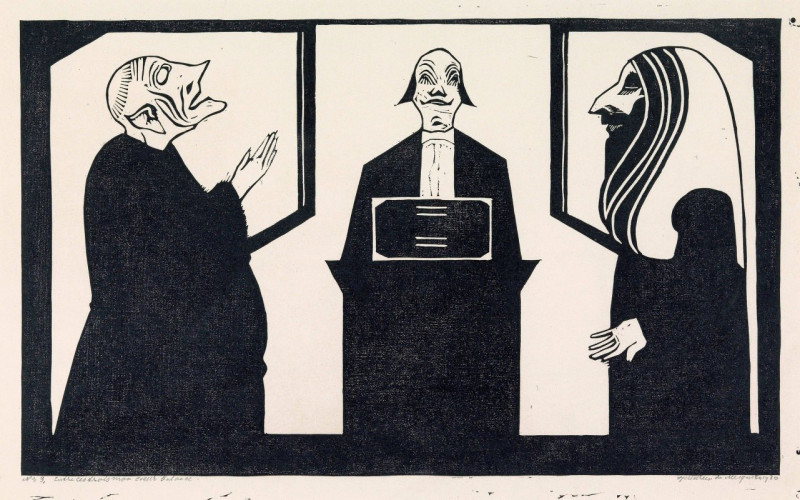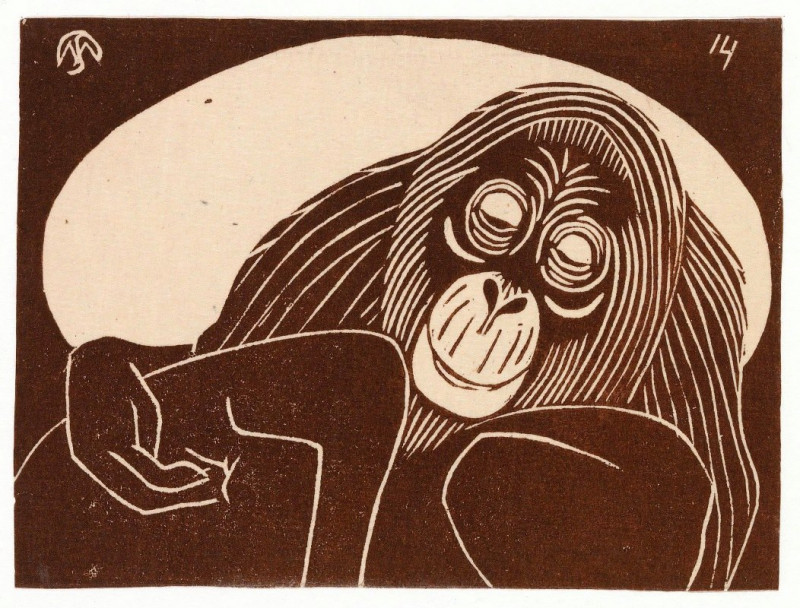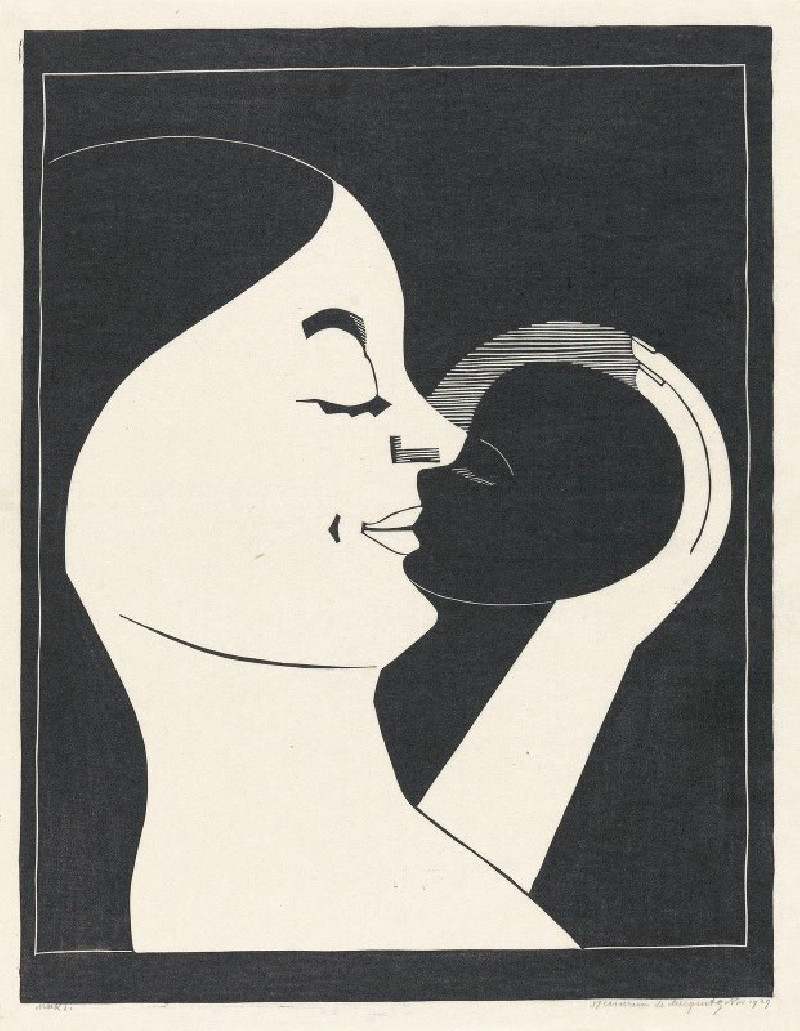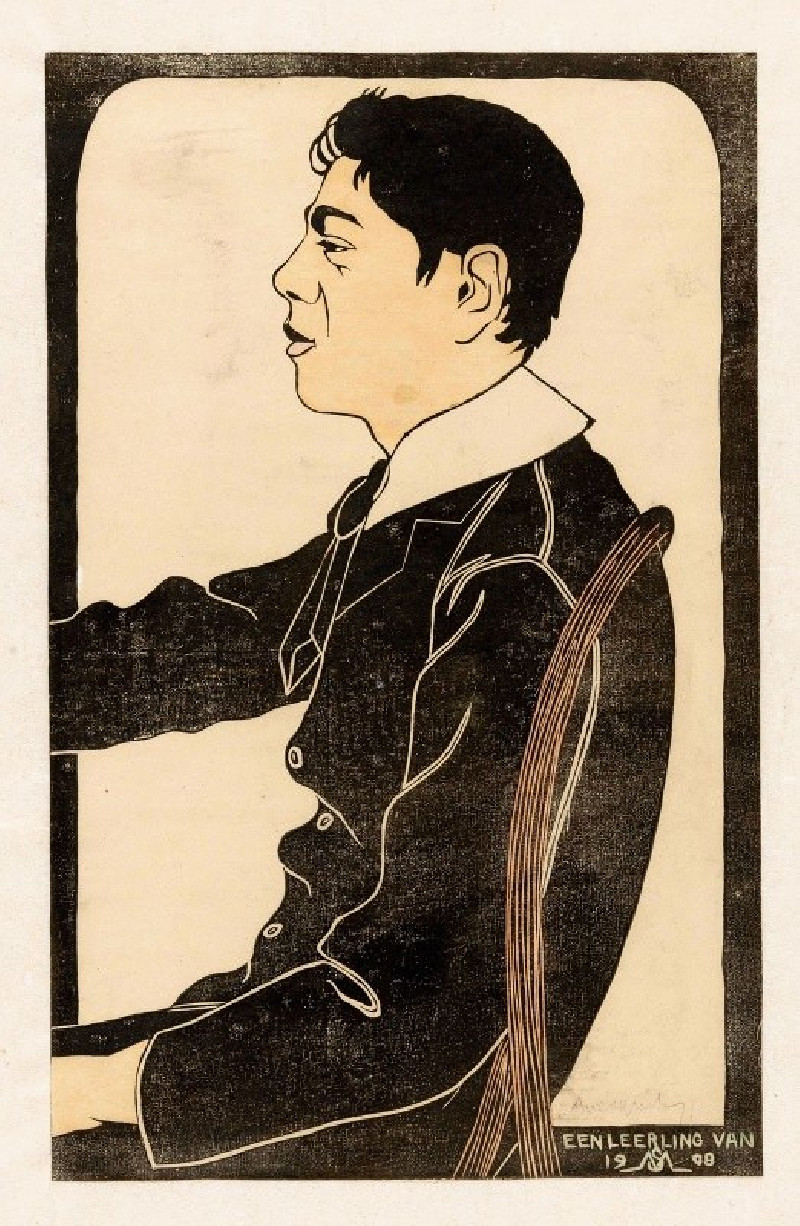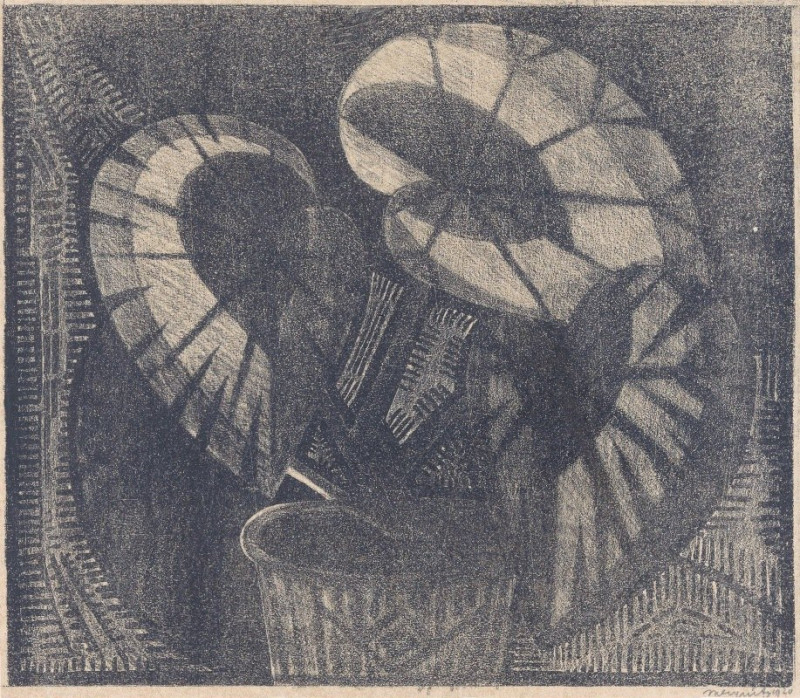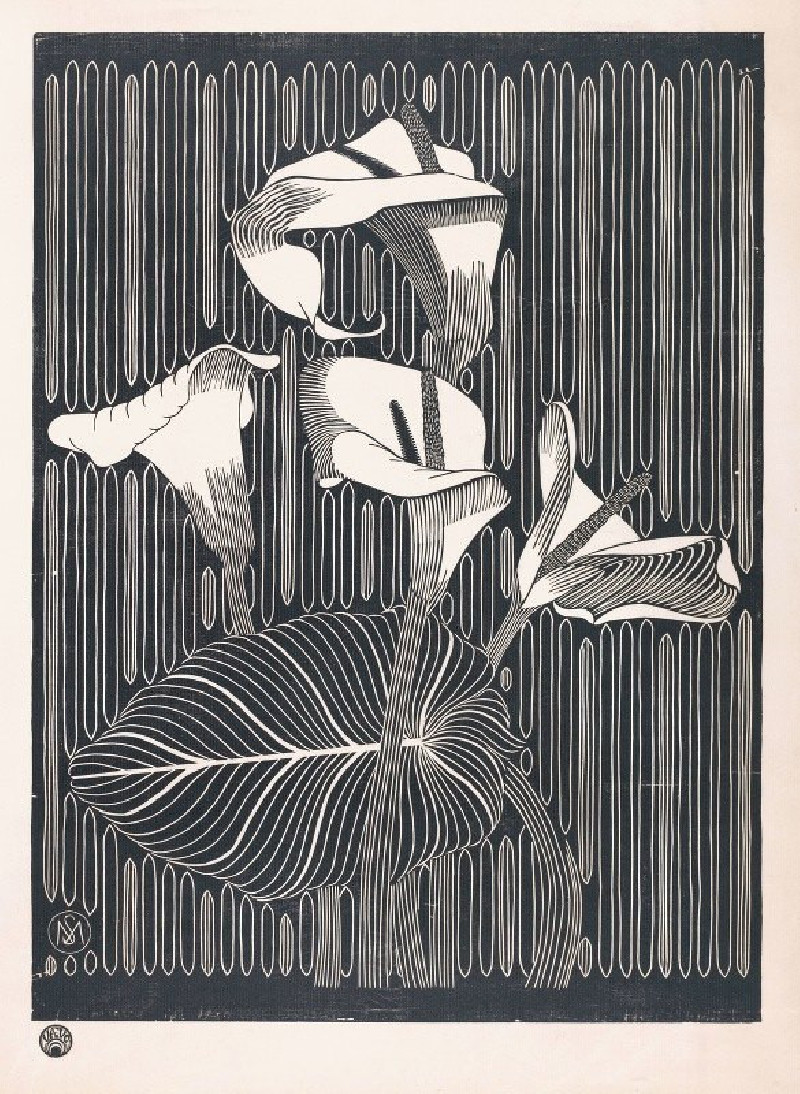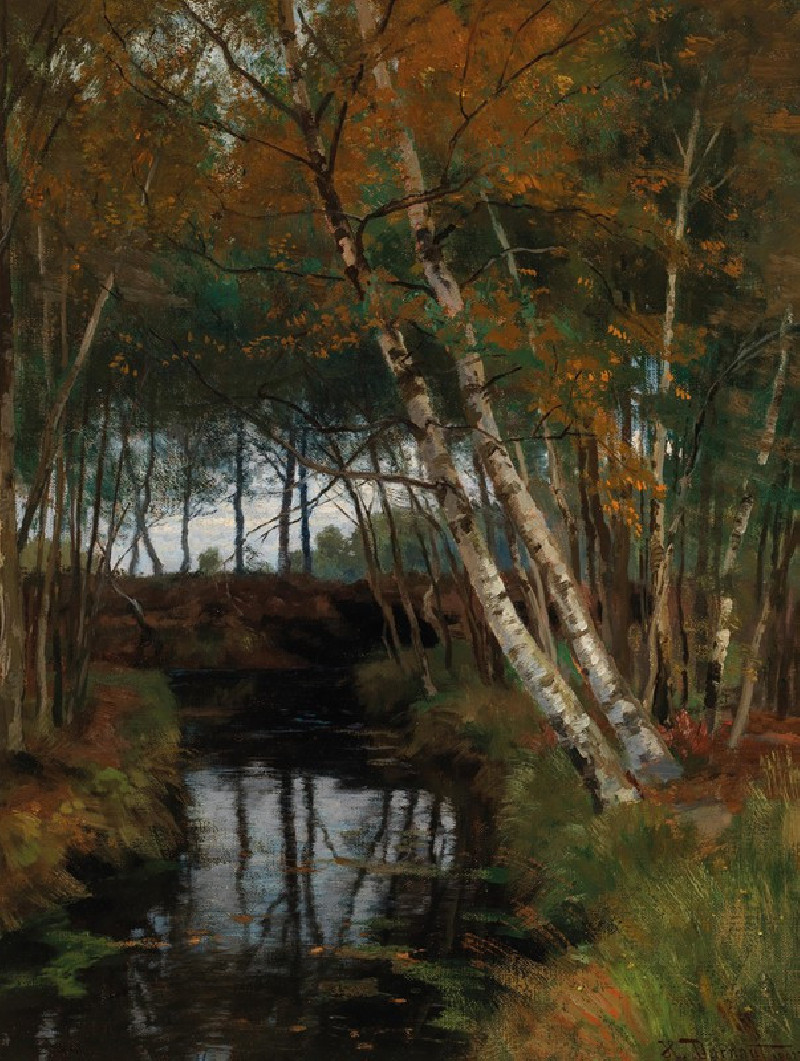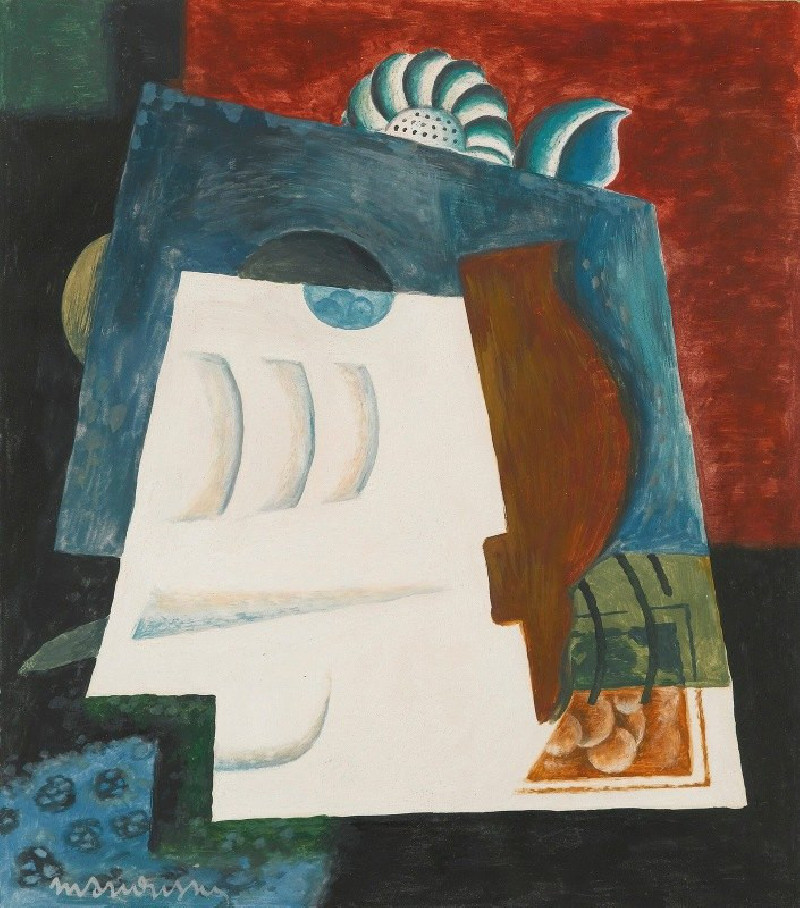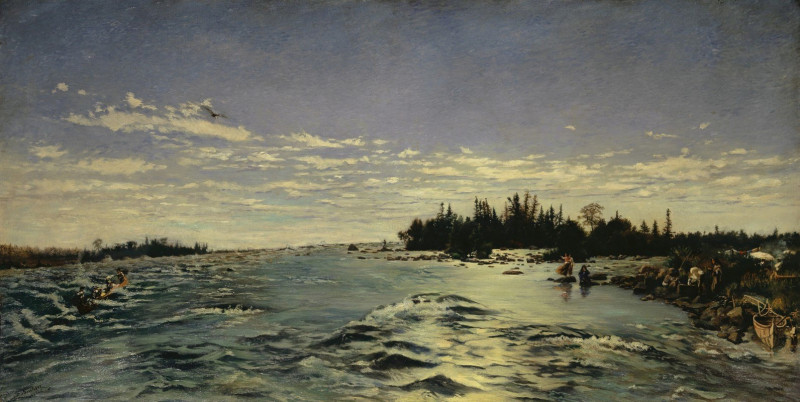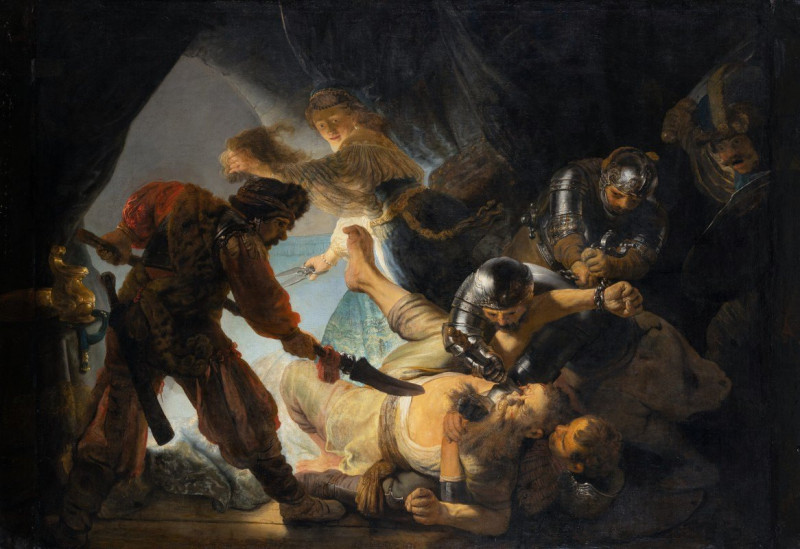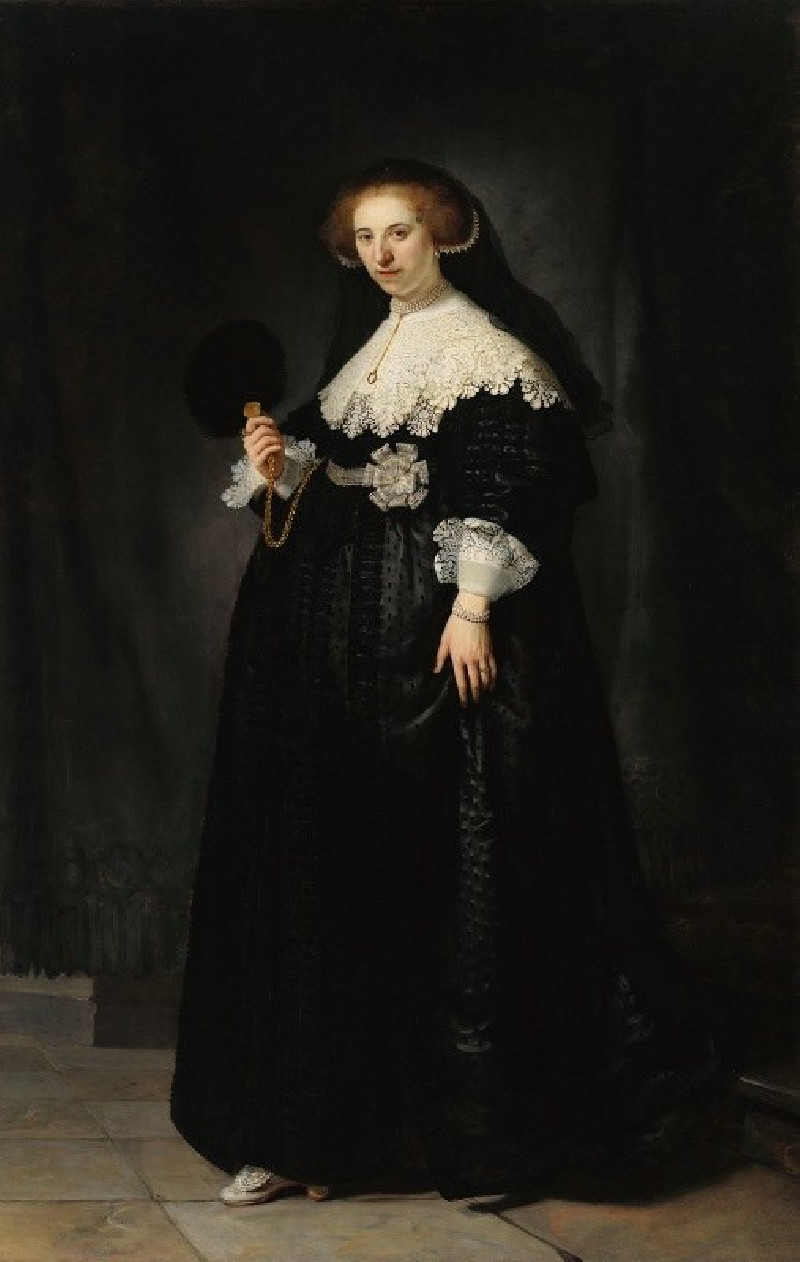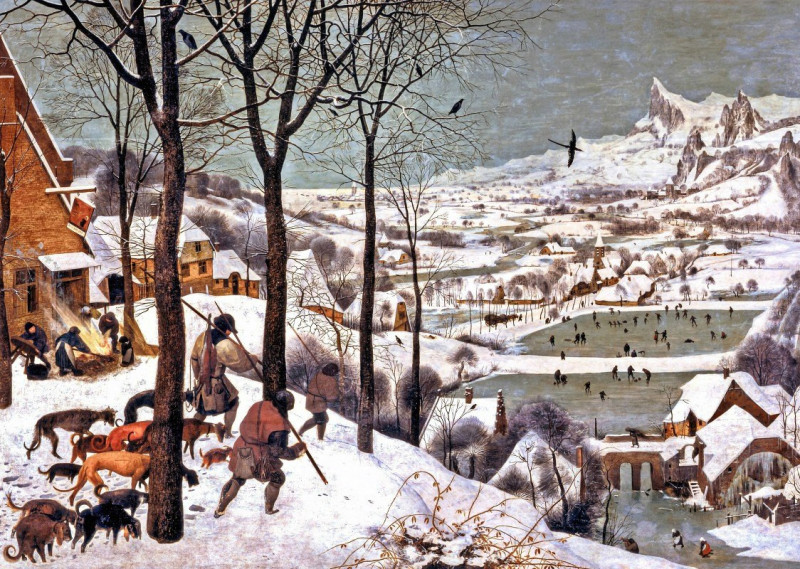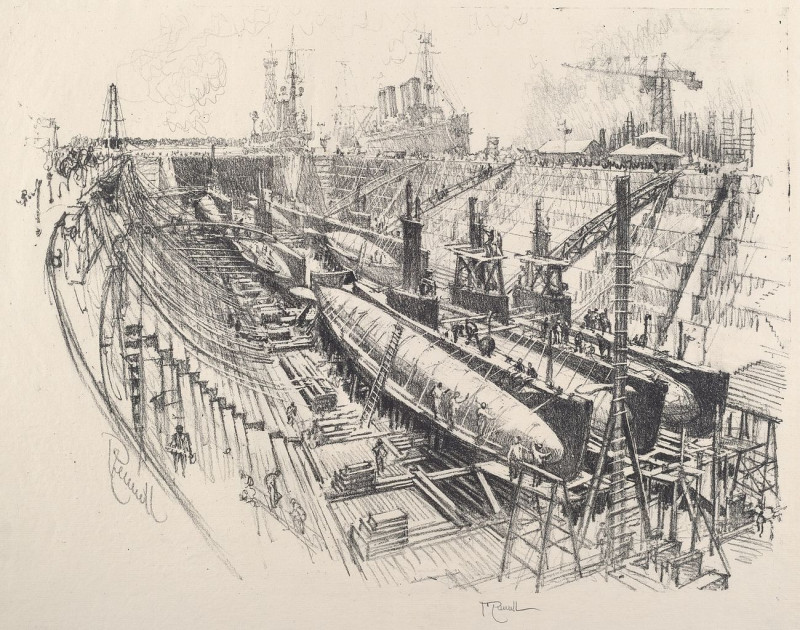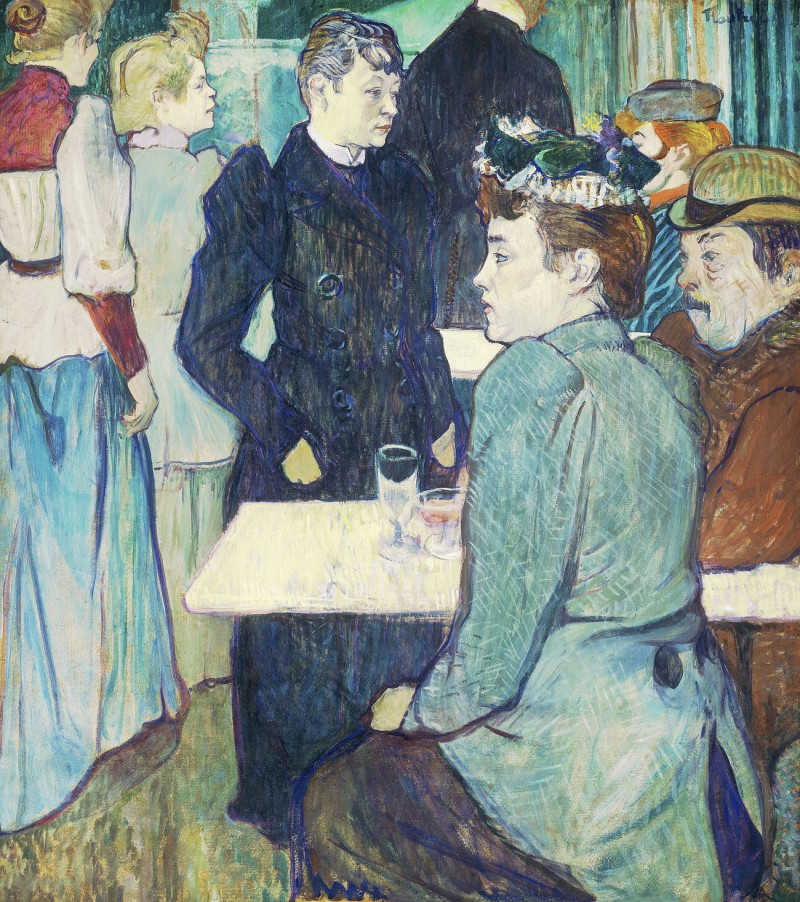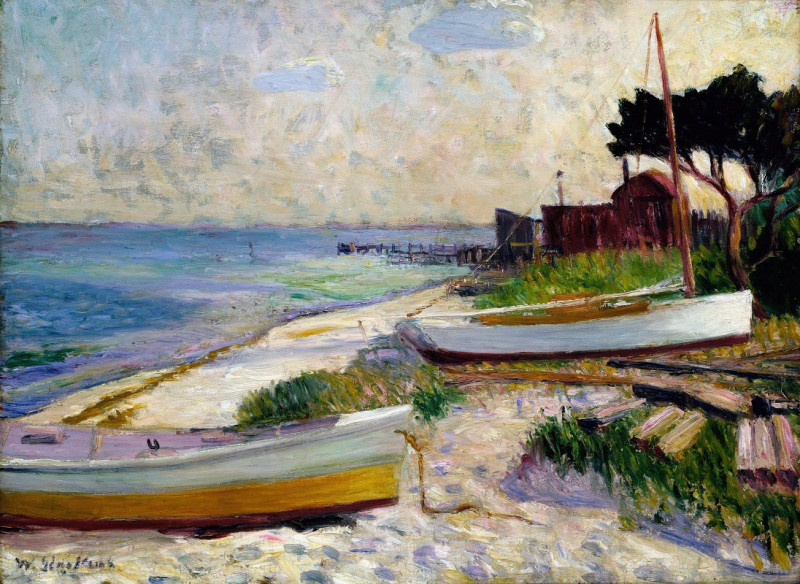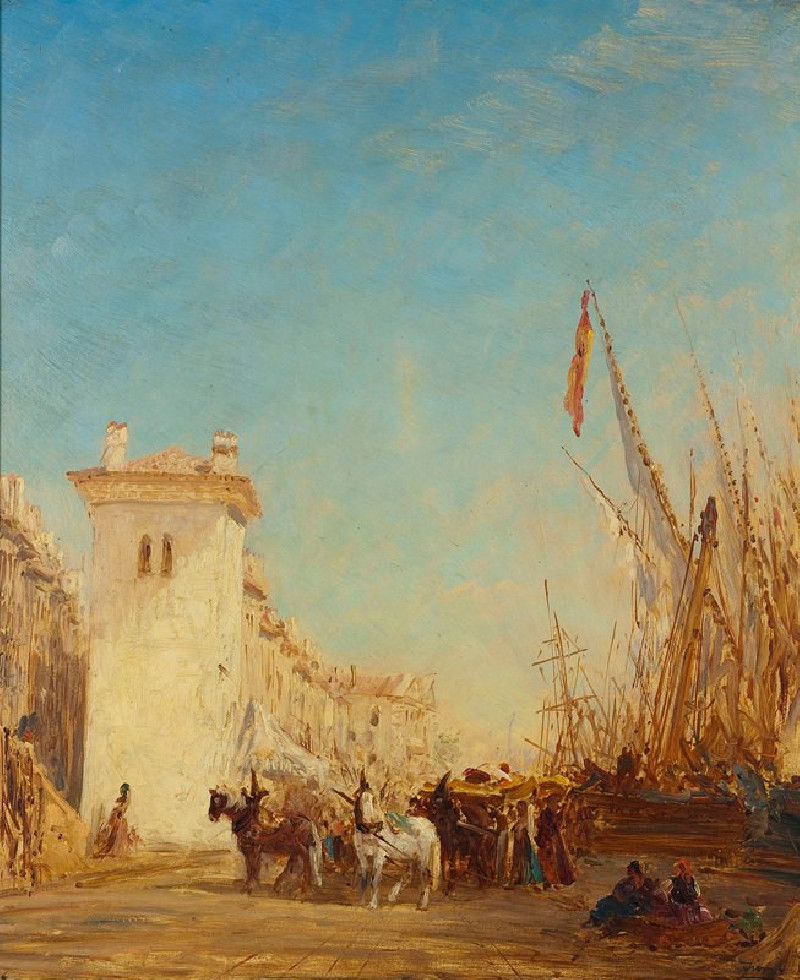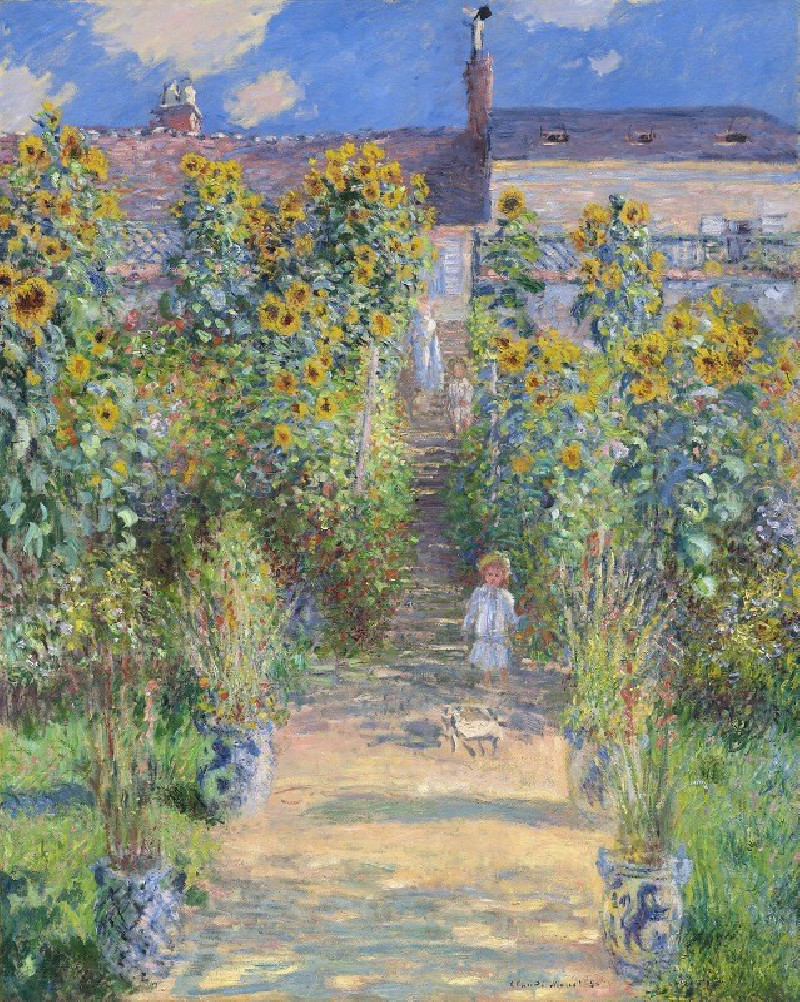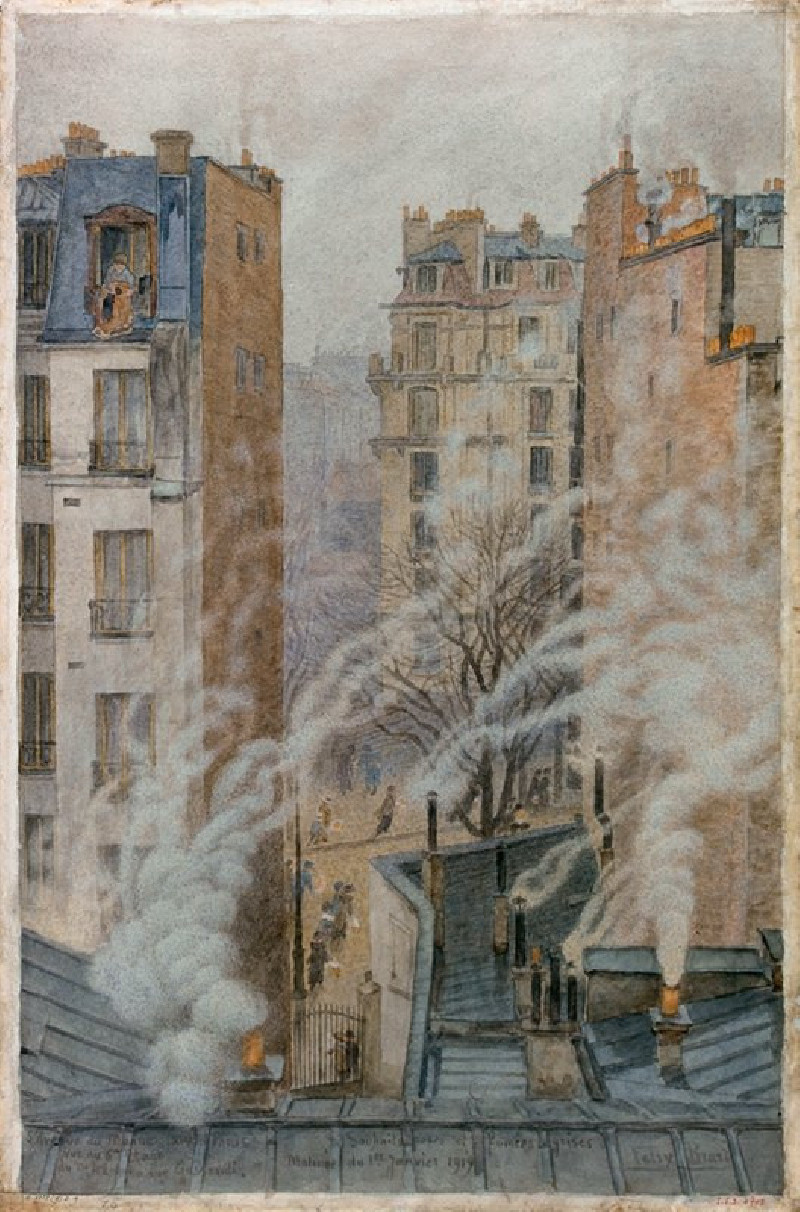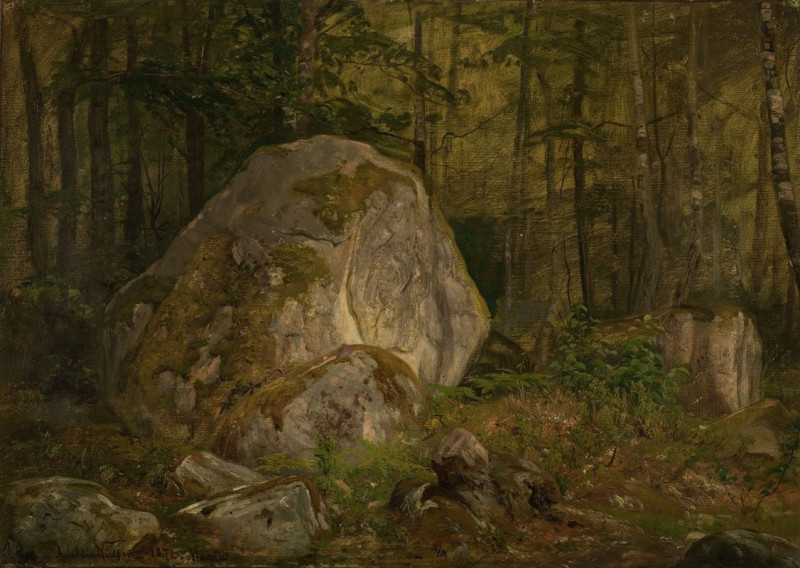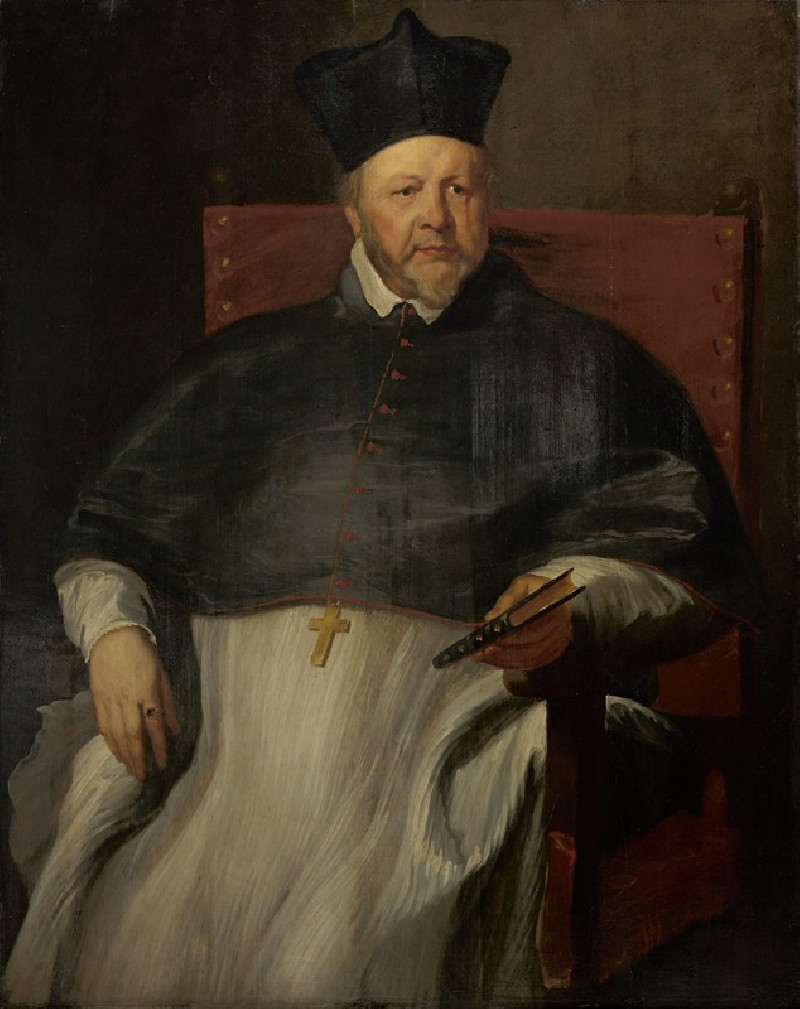Twee rozen
Technique: Giclée quality print
Recommended by our customers
More about this artwork
Samuel Jessurun de Mesquita's woodcut print "Twee Rozen" draws viewers into a simple yet profound depiction of two roses, showcasing the artist's skillful handling of texture and contrast. The piece, predominantly monochromatic, features two beautifully detailed roses, each bloom occupying its own space within the frame. These roses, illustrious in their wrapping petals, offer a contrast between the delicate, soft curves of the flowers and the intricate, almost tribal background pattern.The background, dense with geometric and organic motifs, provides a stark backdrop that emphasizes the purity and simplicity of the roses. This juxtaposition invites an exploration of nature's elegance against the complexities of human-created designs, a theme often revisited in the arts but presented here with a unique, captivating aesthetic."Twee Rozen" exemplifies Mesquita's mastery in the realm of printmaking, utilizing the woodcut technique to render fine detail and texture that both elevates and celebrates the natural world in a stylized form.
Delivery
Returns
Samuel Jessurun de Mesquita was a Dutch graphic artist active in the years before the Second World War. His pupils included graphic artist M. C. Escher (1898–1972). A Sephardic Jew, in his old age he was sent to Auschwitz by the Nazis, where he was gassed along with his wife. After the war, de Mesquita was largely forgotten.

